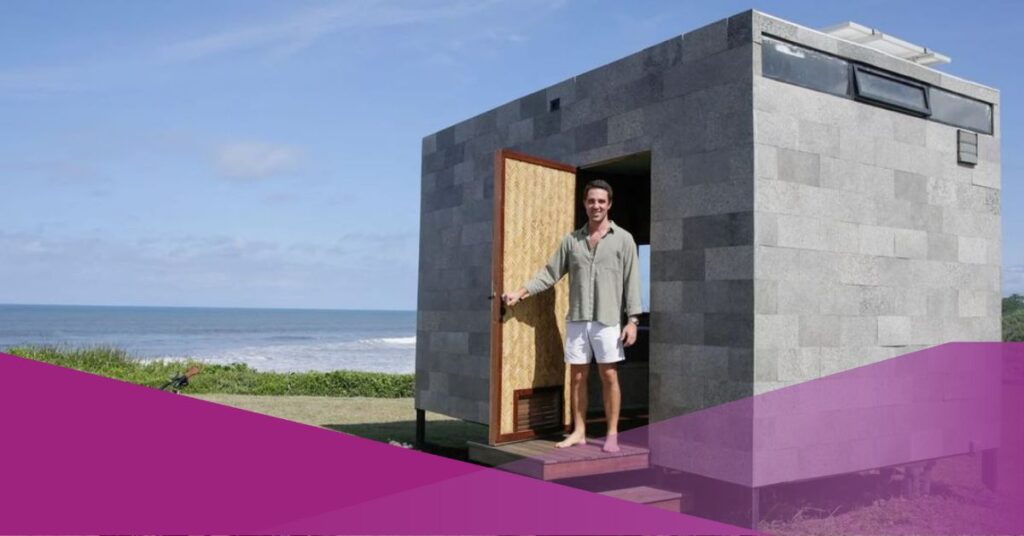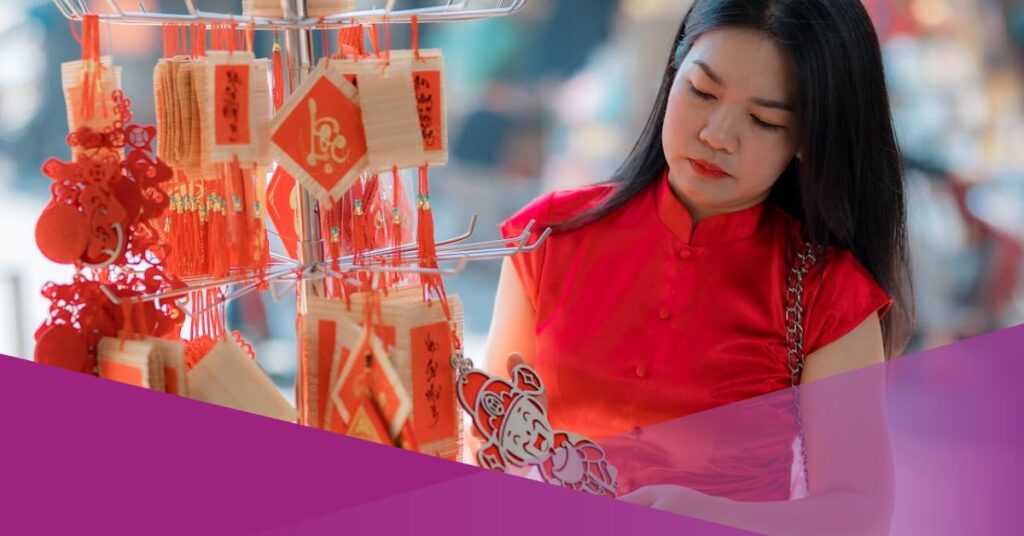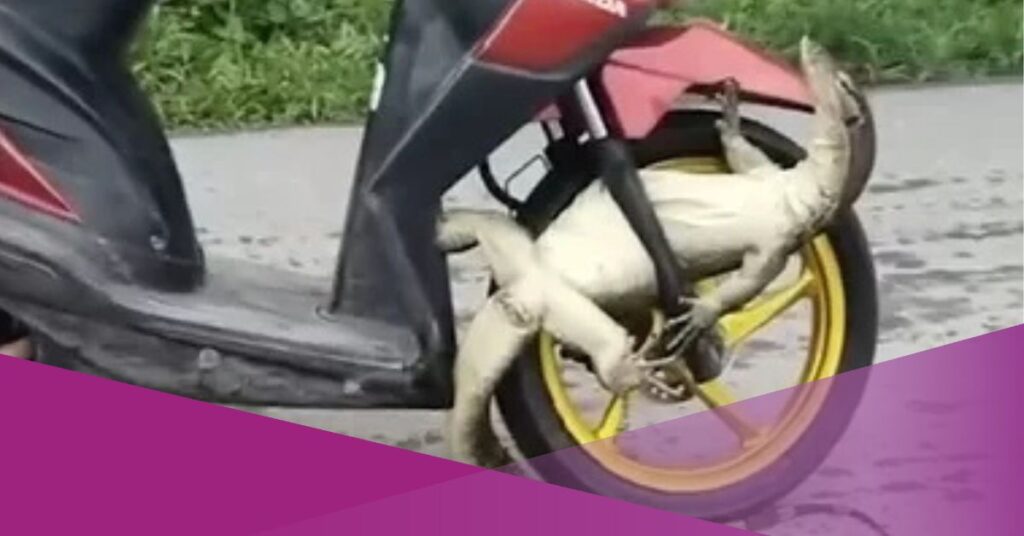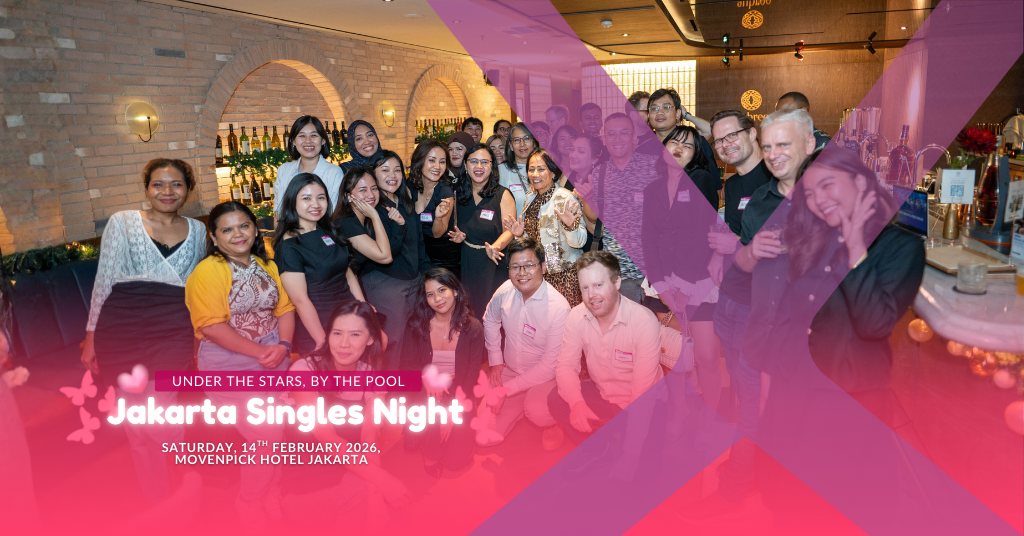For the past two months, environmental activist Gary Bencheghib has been residing in a 12-square-metre tiny house from 35,000 plastic waste collected from Bali’s filthy rivers and lakes. Growing up in Bali, Bencheghib realised how plastic pollution had been one of the biggest problems Bali has ever faced for over a decade.
Bencheghib claimed that all of the interior and furnishings in his tiny house, including the bedframe and kitchen cabinets, were created entirely from waste plastic cups and straws.
Gary Bencheghib uploaded the process on his social media, and it went viral since it was such a new way to incorporate plastic waste into a tiny house by the beach.
Gary Bencheghib told the media during a tour of his tiny house overlooking Bali’s crystal-clear coastline, “I decided to recycle the plastics that we’re collecting from the rivers and show what we can do with it.”
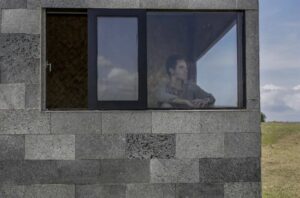
Over the last two years, Gary Bencheghib has led an organisation called “Sungai Watch” to clean up blocked rivers, filthy beaches, and illegal rubbish dumps around Bali and Java to prevent waste from entering the ocean.
After finishing his initial plastic-recycled home, Bencheghib hopes to expand on the design and mass-produce the tiny house for victims of natural disasters.
According to the Environment and Forestry Ministry, over 915,500 tonnes of rubbish were thrown away on the Indonesian resort island alone in 2021, with most of that waste coming from homes and businesses. Bencheghib’s initiatives illustrate the upcycling trend on Bali island.
One of Bali’s upscale beach clubs also promotes zero waste by using rubbish to decorate furniture.
The Potato Head Beach Club’s chairs, necklaces, tissue boxes, and coasters were recreated at their facility utilising kilogrammes of rubbish.
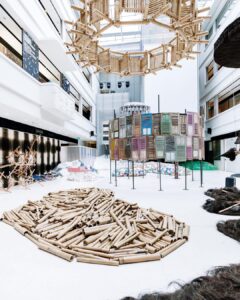
“It’s really just a process that’s based on creativity, so we looked at the waste that is generated, and then we try to get creative about what we can do with it, using science, design, and different elements,” the Chief Experience Officer of Potato Head, Simon Pestridge, told the media at a workshop in the beach club.
As pollution from the neighbouring Java island is washed up by strong winds and rain at the peak of the monsoon season, Bali’s renowned beaches have recently been swamped with plastic waste. Data from the Bali government stated that between October and December 2022, at least 600 tonnes of rubbish were collected.
However, locals and tourists are confident that Bali is headed in the right direction.
“It’s impressive the initiative that the Balinese people, the hotels, and most people around here are doing in terms of collecting and recycling waste,” said a tourist from Thailand, Napas Vongkusolkit.
Interested in this topic? Check out our other articles from Social Expat:
